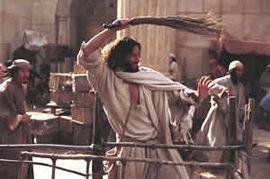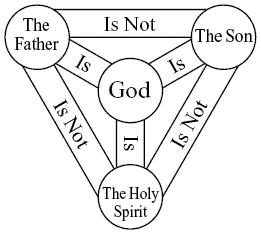Matthew chapter 23
Before Jesus gets into the "Seven Woes" however, He outlines how those of the congregation and who are not in leadership should respond to the leaders of the church, seated in authority over them. "The teachers of the law and the Pharisees sit in Moses' seat. So you must obey them and do everything they tell you." Jesus is very clear, we are to submit to those in authority over us. In the case of the Pharisees though, who taught the Law but did not live according to it, Jesus goes on to say, "But do not do what they do, for they do not practice what they preach." This statement sets up the behaviour of the hypocritical Pharisees as behaviours we should not emulate but still we are to sumbit to their authority and live according to what they teach, that is the Word of God, even though they themselves do not live according to their own teachings.
In Verses 5 - 12, Jesus speaks about the trap of living solely for the approval of men rather than the approval of God and how "whoever exalts himself [before men] will be humbled [by God], and whoever humbles himself [before men] will be exalted [by God]." Jesus lists three ways in which the Pharisees seek to be noticed for their 'piety'.
"Everything they [the Pharisees] do is done for men to see..."
1. They make their phylacteries wide and the tassels on their garments long;
Phylacteries or Tefillin consist of two kosher, leather boxes, one worn on the arm and known as "shel yad", and the other worn on the head and known as "shel rosh". Each box contained the scriptural passages: Exod. 13:1-10, Exod. 13:11-16; Deut. 6:4-9, Deut. 11:13-21, written by a specially trained scribe. The basis for wearing phylacteries was derived by the Rabbis from four biblical verses found within the passages chosen: Exod. 13:9, Exod. 13:16, Deut. 6:8, and Deut. 11:18.
The garments refered to are most likely the tallith, making the tassels the tzitzit, which is a prayer shawl, also commanded by God to be worn by the Jews/Israelites in Numbers 15:38.
Neither the phylacteries nor the tallith were restricted so only Pharisees or teachers could wear them. In fact the phylacteries are an essential part of morning prayer services, and are worn on a daily basis (except the Sabbath and festivals) by many Jews. Most Jewish men also wear the tallith during the morning, Shacharit prayers, during the Torah service, and on Yom Kippur.
(See Why touch the hem of His cloak? for the fulfilment of a Messianic prophesey in the tallith and tzitzit.)
By making their phylacteries wide and their tallith tassels long the Pharisees demonstrate an exterior presentation of scriptural knowledge and observance of prayer without any inner understanding or change.
2. They love the place of honor at banquets and the most important seats in the synagogues;
The Pharisees and Teachers of the Law enjoyed a high standing in the community and as such recieved the 'royal' treatment at banquets or in the synagogues. They loved the places of honor because they would be 'looked up at', as traditionally the places of honor at a banquet were served first, had the best food, the most comfortable seating, and in many cases were even raised on a higher level than the more 'common' tables of guests.Jesus is highlighting the 'Love' they have for this honor as the problem, not the honor itself. A great theological teacher or church leader should be treated with respect, but he should not 'love' the place of honor he recieves but rather love service he is doing for the body of Christ. Rather, any praise he recieves should be swiftly turned to God as it is by the Gifts of God that any man or woman is blessed with the ability to teach. This statement is challenging the motives of the Pharisees.
3. They love to be greeted in the marketplaces and to have men call them 'Rabbi.'
The Jewish Rabbis were also called father and master, by their several disciples / students. There were two important requirements of the Rabbi's disciples,
a. To believe implicitly what the Rabbi said was true, without asking any farther reason.
b. To obey implicitly what the Rabbi instructed, without seeking any further authority.
Jesus, therefore, by forbidding us either to give or receive the title of Rabbi, Master, or Father, forbids us either to receive any such reverence, or to pay any such to any man, but only to God. Jesus is not using 'father' here in a paternal sence.
In Verses 13-39 Jesus gives 9 rebukes which are in stark contrast to the 9 blessing of the Sermon on the Mount. Where the Sermon on the Mount gives the Be-atitudes and blessings associated with correct Christian living, here we see their opposite and the punnishments associated with hypocritical and woeful behaviour of one professing righteousness without the sacrifice of Jesus. Jesus speaks harshly here, but this is not the language of personal irritation, but of divine warning and condemnation.
It is also very important to realise that, while we often think of the Scribes and Pharisees as hypocrites the Pharisees' contemporaries thought of them as very devoted to the Bible, and considered the scribes experts in biblical law. In today's terms, Jesus was condeming many popular preachers and people who seemed to be living holy lives. However, where humans see only the exterior Jesus knows the heart of a man and they were practicing human religion rather than serving God with purified hearts.
1. You shut the kingdom of heaven in men's faces. You yourselves do not enter, nor will you let those enter who are trying to.
The Pharisees were not poor in spirit or humble so they tried to enter the Kingdom on their wn righteousness. Also they hindered others by such a hypocritical profession of faith. It is bad for someone to not enter into heaven themselves, but it is far worse to prevent another from going in (Matthew 18:6).
2. You travel over land and sea to win a single convert, and when he becomes one, you make him twice as much a son of hell as you are.
Zeal in evangelism does not prove that a person is right with God. They were courageous and energetic messengers, but with a false message.
3. Which is greater: the gift, or the altar that makes the gift sacred?
Out of obedience to God's word, they would not swear by the name of God (Exodus 20:7). But they constructed an elaborate system of oaths, some of which were binding and some were not. A way of making a promise while keeping your fingers crossed.
4. You strain out a gnat but swallow a camel.
Neither a camel nor a gnat are kosher and thus were not allowed to be consumed. Here Jesus is pionting out how the Pharisees observed the minor and exterior details such as tithing but ignored the more important matters of the law like justice, mercy and faithfulness.
5. You clean the outside of the cup and dish, but inside they are full of greed and self-indulgence.
Rather than being satisfied with a superficial cleansing, and the appearance of righteousness before others, God looks for a true cleansing, so we can be clean before God and man.
6. On the outside you appear to people as righteous but on the inside you are full of hypocrisy and wickedness.
God is never fooled by what we show on the outside. He sees what we actually are, not what we appear to be to other men.
7. You build tombs for the prophets and decorate the graves of the righteous. And you say, 'If we had lived in the days of our forefathers, we would not have taken part with them in shedding the blood of the prophets.'
They professed to venerate the dead, but they rejected the living. In doing so, they show that they really are the children of those who murdered the prophets in the days of old
8. You snakes! You brood of vipers! How will you escape being condemned to hell?
Jesus compares the Pharisees to the Devil here, linking them to his heritage and not that of Abraham.
9. O Jerusalem, Jerusalem, you who kill the prophets and stone those sent to you, how often I have longed to gather your children together, as a hen gathers her chicks under her wings, but you were not willing. Look, your house is left to you desolate. For I tell you, you will not see me again until you say, 'Blessed is he who comes in the name of the Lord.'
Luke 19:41 tells us that Jesus wept as He looked over the city of Jerusalem, contemplated its coming judgment, and said these words. Jesus wanted to protect them from the terrible judgment that will follow their rejection of Him. Jesus is revealing here one of the conditions surrounding His Second Coming. When Jesus comes again, the Jewish people will welcome Him as the Messiah saying, "blessed is He who comes in the name of the Lord."













